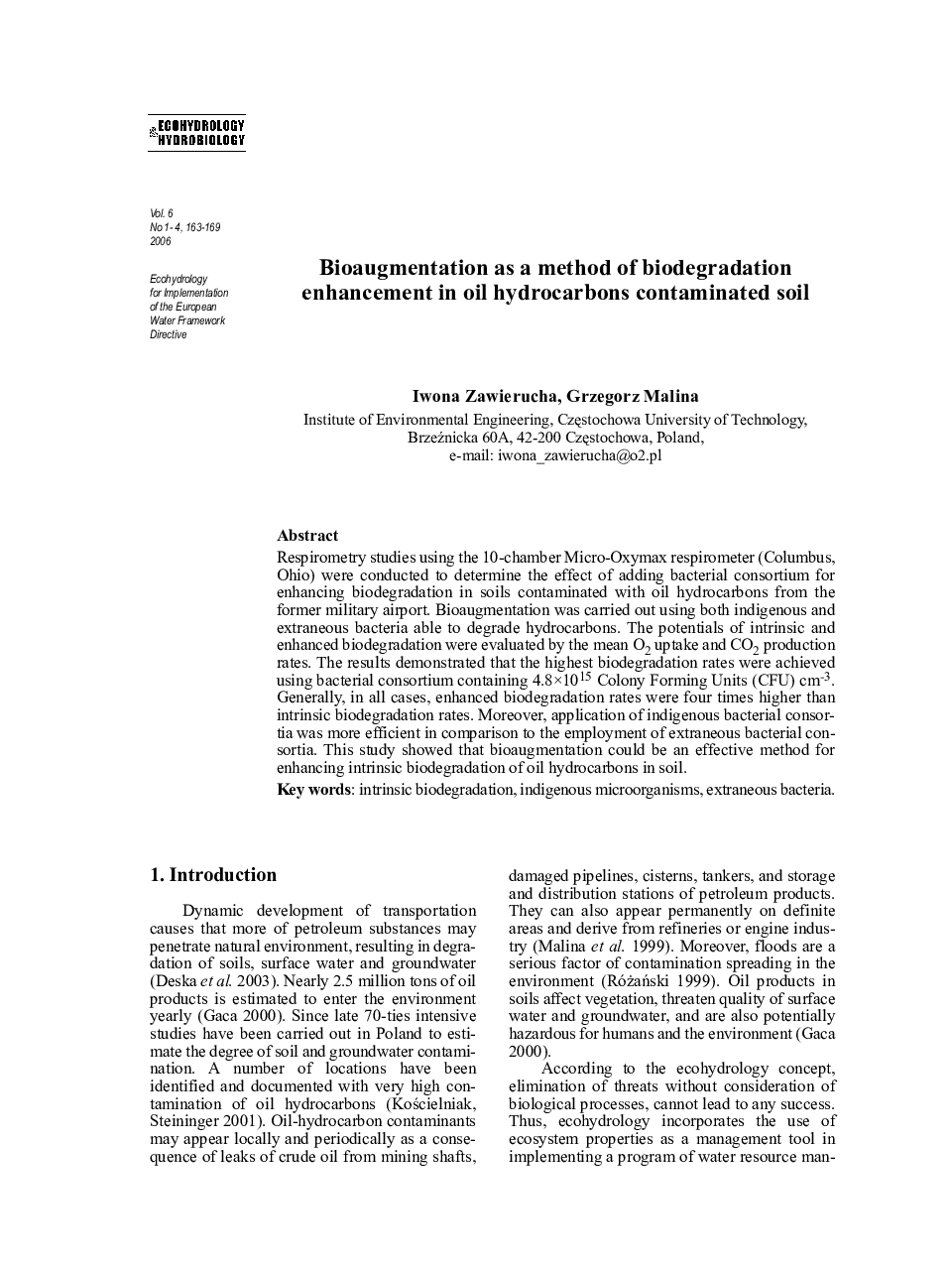| Article ID | Journal | Published Year | Pages | File Type |
|---|---|---|---|---|
| 4388345 | Ecohydrology & Hydrobiology | 2006 | 7 Pages |
Abstract
Respirometry studies using the 10-chamber Micro-Oxymax respirometer (Columbus, Ohio) were conducted to determine the effect of adding bacterial consortium for enhancing biodegradation in soils contaminated with oil hydrocarbons from the former military airport. Bioaugmentation was carried out using both indigenous and extraneous bacteria able to degrade hydrocarbons. The potentials of intrinsic and enhanced biodegradation were evaluated by the mean O2 uptake and CO2 production rates. The results demonstrated that the highest biodegradation rates were achieved using bacterial consortium containing 4.8Â ÃÂ 1015 Colony Forming Units (CFU) cmâ3. Generally, in all cases, enhanced biodegradation rates were four times higher than intrinsic biodegradation rates. Moreover, application of indigenous bacterial consortia was more efficient in comparison to the employment of extraneous bacterial consortia. This study showed that bioaugmentation could be an effective method for enhancing intrinsic biodegradation of oil hydrocarbons in soil.
Keywords
Related Topics
Life Sciences
Agricultural and Biological Sciences
Agricultural and Biological Sciences (General)
Authors
Iwona Zawierucha, Grzegorz Malina,
